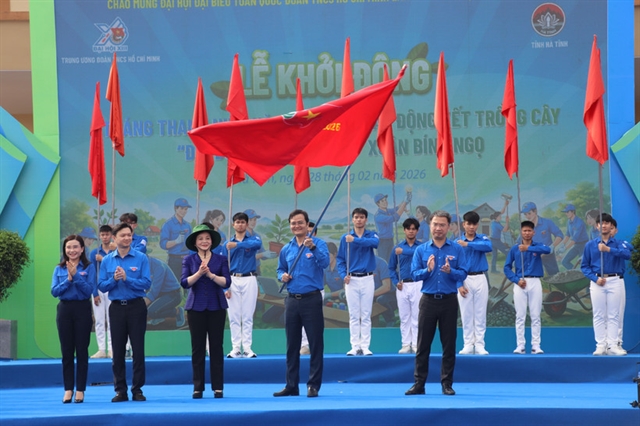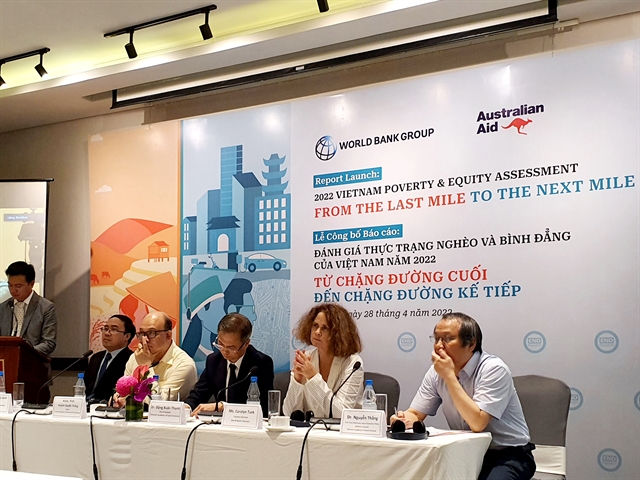 Society
Society


|
| Panelists at the launch of the 2022 Poverty and Equity Assessment by World Bank in Việt Nam. — VNS Photo Nhật Hồng |
HÀ NỘI — The poverty and equity agenda is no longer only about raising minimum living standards and tackling chronic poverty - it is also about creating new, sustainable economic pathways for a more aspirational population.
The statement was introduced by Judy Yang, World Bank senior economist and co-author of the institution’s latest Poverty and Equity Assessment in Việt Nam.
Poverty has declined impressively over the last decade, said the report, with poverty rates reduced by at least half among ethnic minorities and households in the Northern midlands and mountainous regions.
Yet although Việt Nam has made remarkable socio-economic progress and poverty reduction, those who are no longer poor still encounter great challenges in becoming middle class, or financially secure.
While COVID-19 did not reverse the progress made before 2020, it has highlighted that economic vulnerabilities continue beyond poverty.
Carolyn Turk, Country Director of World Bank in Vietnam, said at the launch of the report: “Certain groups, even if they are no longer poor, still need a safety net during economic downturns. These groups include informal or migrant workers.
“And the strategies to build the middle class are not the same as those use to alleviate poverty.”
The document proposed several key recommendations going forward, which are improvements in quality and access to higher and tertiary education, more effective social assistance for poorer households, and developing fiscal policies that contribute to poverty elimination and economic growth.
Dr. Nguyễn Thắng, Standing Vice-Chairman of the Socio-Economic Advisory Council (Vietnam Academy of Social Sciences), said at the event: “Although this is a report on poverty, we can see that poverty is associated with holistic growth, and therefore requires comprehensive solutions.”
Titled ‘From the Last Mile to the Next Mile’, the report reviews the poverty and inequality trends in the last decade, which are then used to define the challenges in the ‘last mile’ of poverty. It also discussed the new strategies that allow households to move on to the middle class in the ‘next mile’.
“Both the last mile and next mile agendas are equally important for Việt Nam’s growth trajectory to high-income status [by 2045],” said Judy Yang. — VNS

.jpg)


